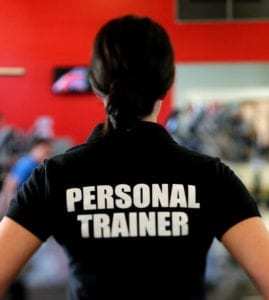 “I feel your pain.” How many times have you said that to someone and had no idea how they really felt? I think that real empathy is rare. Most of us are capable of a kind of “selective empathy,” but the real thing often eludes us, which might be a good thing.
“I feel your pain.” How many times have you said that to someone and had no idea how they really felt? I think that real empathy is rare. Most of us are capable of a kind of “selective empathy,” but the real thing often eludes us, which might be a good thing.
“Empathy is the capacity to understand or feel what another being (human or non-human) is experiencing from within the other being’s frame of reference,” according to Wikipedia. It’s the capacity to place oneself in another’s position. We generally acknowledge that empathy is a good thing. But, does it really make us more effective at helping others? What about sympathy? Empathy and sympathy are related but truly different. Empathy says, “I feel with you.” While sympathy says “I feel for you.”
I think it’s important to sympathize with others, but it is my opinion that the empathy we are all encouraged to display can make us ineffective at helping.
 It’s no secret that I am a personal trainer in my other life. I have some determined clients that have been through some serious stuff. I have never had a heart attack, a stroke, a knee replacement, a shoulder replacement, diabetes, or cancer — which for me is a good thing. But some of my clients are dealing with those afflictions or others. I can advise them to avoid certain movements that may aggravate the condition and to clean up their diet. But I don’t live in their bodies, so the ultimate responsibility lies with them. If something doesn’t feel right, they must let me know so I can give them suggestions on how to fix it. Yet, many publications and hands-on training for fitness professionals encourage developing empathy for your clients. I think that had I actually experienced a debilitating condition, I would be so terrified of hurting my client — or of being sued — that I would not be of much help.
It’s no secret that I am a personal trainer in my other life. I have some determined clients that have been through some serious stuff. I have never had a heart attack, a stroke, a knee replacement, a shoulder replacement, diabetes, or cancer — which for me is a good thing. But some of my clients are dealing with those afflictions or others. I can advise them to avoid certain movements that may aggravate the condition and to clean up their diet. But I don’t live in their bodies, so the ultimate responsibility lies with them. If something doesn’t feel right, they must let me know so I can give them suggestions on how to fix it. Yet, many publications and hands-on training for fitness professionals encourage developing empathy for your clients. I think that had I actually experienced a debilitating condition, I would be so terrified of hurting my client — or of being sued — that I would not be of much help.
What if you are depressed and suicidal? It certainly wouldn’t help to seek a mental health counselor that is also depressed and suicidal. It might help to find someone who had experienced those emotions in the past, but found a way to deal with them. But what if you couldn’t pull yourself out of the abyss and decided to end it all? Then, whose fault is it? I would say it’s yours. Stay with me here.
Many animals and young humans are completely dependent on others and have no choice in their quality of life, but the rest of us do have a choice. We can choose to drive defensively, clean up our diet, lose weight, and prevent cancer. We can choose to fight cancer if we get it, and we can choose to get a new job or move on after a divorce. It is my opinion that by over-empathizing with others and rushing in to rescue them, or starting a GoFundMe.com page when bad things happen, we are creating a society of self-entitled, overly dependent citizens. Kind of scary.
 It’s also no secret that I am an animal rights advocate, because animals appreciate what you do for them without condemnation. If you accidentally lock your cat in the closet for the day or he runs out of food, he doesn’t report you and have you arrested. (I am speaking from experience here.) A common excuse for not taking a more proactive role in animal welfare is something along the lines of “It’s just too heartbreaking for me.” Although I doubt anyone in our society ever experiences the terror and pain of some animals, the very notion of what it may be like is enough of an excuse to derail some people. “Compassion fatigue” is a very real condition experienced by many shelter staff and rescue workers.
It’s also no secret that I am an animal rights advocate, because animals appreciate what you do for them without condemnation. If you accidentally lock your cat in the closet for the day or he runs out of food, he doesn’t report you and have you arrested. (I am speaking from experience here.) A common excuse for not taking a more proactive role in animal welfare is something along the lines of “It’s just too heartbreaking for me.” Although I doubt anyone in our society ever experiences the terror and pain of some animals, the very notion of what it may be like is enough of an excuse to derail some people. “Compassion fatigue” is a very real condition experienced by many shelter staff and rescue workers.
If your happiness, health, and success become the responsibility of another person or entity, it’s easy to place blame if all doesn’t go well. We all deserve a little sympathy, and maybe even empathy, once in a while. It helps to have have someone on our side that understands how we feel. We all came from dysfunctional families in one way or another. We’ve all been hurt emotionally and physically. Hopefully, we learned from our mistakes; if not, we deserve to pay the consequences. So suck it up and deal with your stuff. I don’t feel your pain. Just saying.






